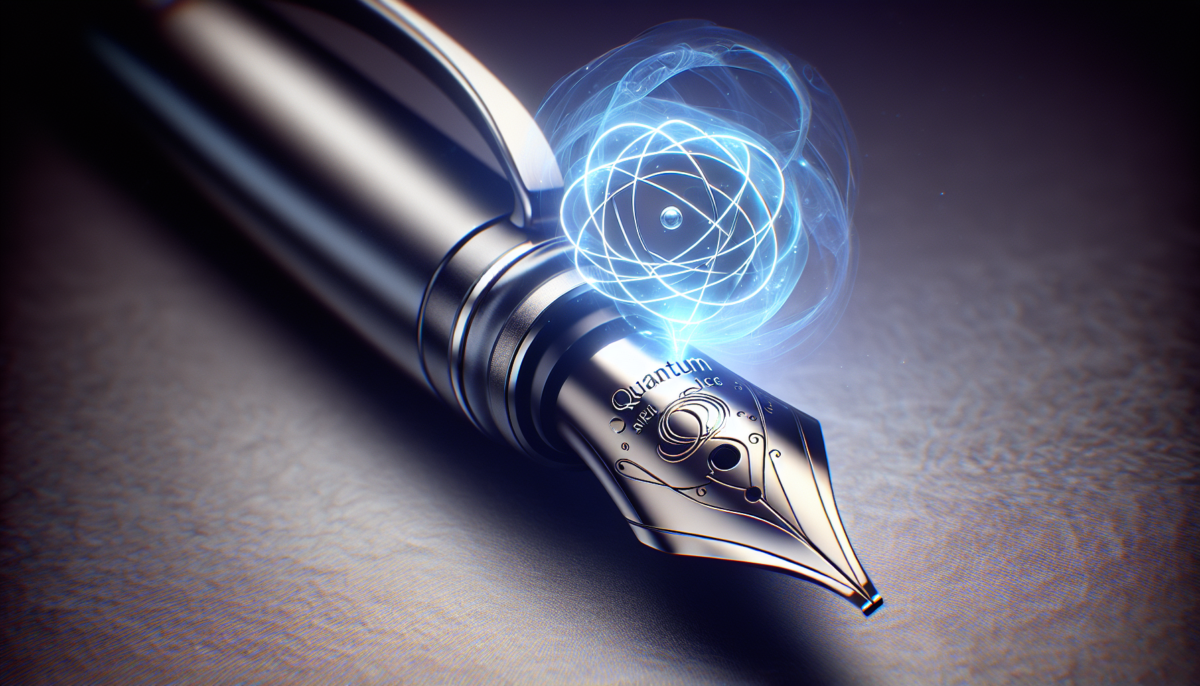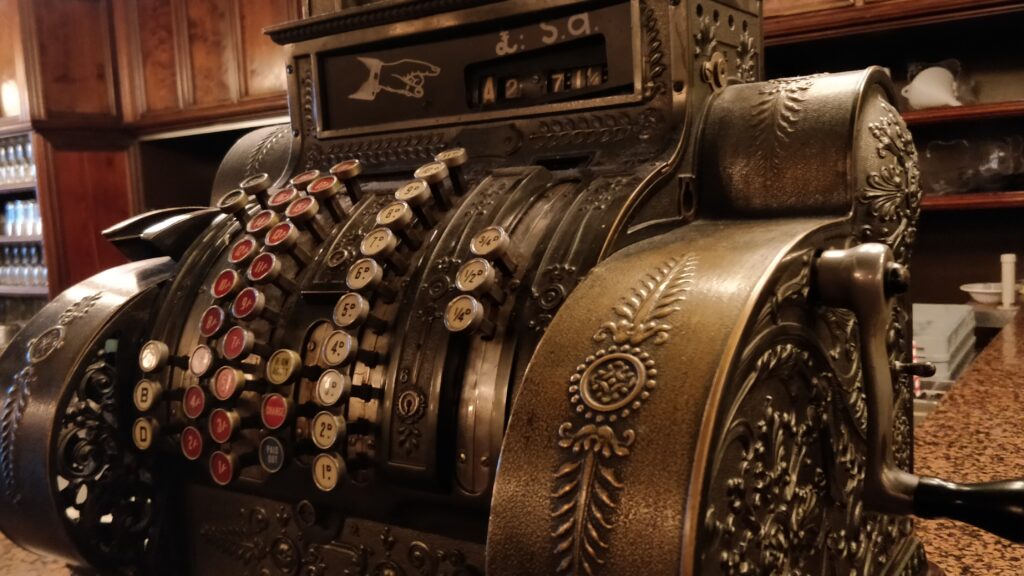Imagine a new kind of metal that revolutionizes the way we engineer and build objects. A metal that is not bound by the limitations of traditional materials, but instead harnesses the power of quantum mechanics to push the boundaries of what’s possible. This is Quantum Metal – a breakthrough material that promises unparalleled strength, flexibility, and conductivity. With its potential applications ranging from aerospace engineering to electronics, Quantum Metal is poised to shape the future of technology and innovation. Get ready to experience a whole new world of possibilities with Quantum Metal.

What is Quantum Metal
Definition
Quantum Metal is a cutting-edge material that has revolutionized various industries with its unique properties and capabilities. It is a type of metal that incorporates quantum dot technology, nanoparticle integration, and surface modification techniques to enhance its strength, conductivity, and durability. By harnessing the principles of quantum mechanics, Quantum Metal has the potential to reshape the way we design and manufacture various products, from electronics to energy storage devices and even medical applications.
Properties
One of the key properties of Quantum Metal is its increased strength compared to traditional metals. This enhanced strength is achieved through the precise control and arrangement of quantum dots and nanoparticles within the metal structure. These nanoparticles enable quantum confinement, which restricts the motion of electrons, leading to improved mechanical properties such as tensile strength and hardness.
Another notable property of Quantum Metal is its enhanced conductivity. By incorporating conductive quantum dots into the metal matrix, the material becomes highly conductive, allowing it to efficiently transmit electrical signals or heat. This property is particularly valuable in electronic and telecommunications applications where high-performance and reliable conductivity are crucial.
Furthermore, Quantum Metal exhibits improved durability and resistance to corrosion. Through surface modification techniques, the material’s surface can be engineered to be highly resistant to degradation from environmental factors or chemical reactions. This attribute makes Quantum Metal highly suitable for applications where durability and longevity are paramount, such as in energy generation and storage systems.
Advantages of Quantum Metal
Increased Strength
Quantum Metal’s superior strength offers several advantages in various industries. For example, in automotive manufacturing, the use of Quantum Metal components can result in lighter and more fuel-efficient vehicles without compromising safety. Additionally, in construction and infrastructure projects, the increased strength of Quantum Metal can lead to more durable and resilient structures, reducing the need for frequent maintenance and repairs.
Enhanced Conductivity
The heightened conductivity of Quantum Metal enables faster and more efficient transmission of electrical signals and heat. This makes it an ideal material for electronic devices, where low resistance and minimal power losses are essential for optimal performance. Furthermore, in telecommunications, the improved conductivity of Quantum Metal facilitates the seamless transfer of data, enabling faster communication and better connectivity.
Improved Durability
Quantum Metal’s enhanced durability is a significant advantage in a wide range of applications. In the energy sector, it can be utilized in the construction of robust wind turbine blades, ensuring their longevity and reliability in harsh environmental conditions. Moreover, in the medical field, the use of Quantum Metal implants can provide long-lasting and corrosion-resistant solutions, promoting enhanced patient outcomes and reducing the need for frequent replacements.
Disadvantages of Quantum Metal
Expensive Production
One of the main challenges associated with Quantum Metal is its expensive production. The incorporation of quantum dot technology and nanoparticle integration requires sophisticated manufacturing processes, specialized equipment, and high-quality raw materials, all of which contribute to elevated production costs. This cost factor may limit the widespread adoption of Quantum Metal in certain industries, especially those with strict budget constraints.
Limited Availability
Currently, Quantum Metal is not readily available in large quantities. The complex manufacturing process and the specialized nature of the required materials restrict its production scale. This limited availability can pose challenges for industries that require a steady and significant supply of materials, potentially hindering the widespread integration of Quantum Metal into various products and applications.
Complex Manufacturing Process
The production of Quantum Metal involves intricate techniques such as quantum dot technology, nanoparticle integration, and surface modification. These processes require precise control, sophisticated equipment, and skilled technicians. The complexity of the manufacturing process can result in longer production times and increased costs. Additionally, the need for specialized expertise may limit the number of manufacturers capable of producing Quantum Metal, potentially slowing down its market penetration.
How Quantum Metal is Produced
Quantum Dot Technology
The production of Quantum Metal begins with the incorporation of quantum dots, which are semiconductor nanoparticles. These dots are carefully dispersed within the metal matrix, allowing for size-dependent confinement of electrons. This confinement affects the electronic and mechanical properties of the material, enhancing its strength and conductivity. The utilization of quantum dots is a key aspect of Quantum Metal’s unique properties and sets it apart from traditional metals.
Nanoparticle Integration
In addition to quantum dots, Quantum Metal integrates various types of nanoparticles into its structure. These nanoparticles, which can be metallic or non-metallic, further enhance the material’s strength, conductivity, and durability. By controlling the size, shape, and composition of these nanoparticles, manufacturers can tailor Quantum Metal’s properties to suit specific industry requirements.
Surface Modification
To optimize the durability and resistance to corrosion, Quantum Metal undergoes surface modification processes. These processes involve coating the material with protective layers or applying nanoscale surface treatments, such as using thin films or plasma technologies. The surface modification techniques enhance the material’s ability to withstand environmental degradation and extend its lifespan in challenging conditions.

Applications of Quantum Metal
Electronics and Telecommunications
The enhanced conductivity and durability of Quantum Metal make it ideal for applications in the electronics and telecommunications industries. It can be utilized in the manufacturing of high-performance circuit boards, connectors, and interconnects, enabling faster and more efficient transmission of electrical signals. Additionally, Quantum Metal’s resilience to corrosion makes it suitable for use in electronic devices that are exposed to harsh environments or subjected to high temperatures.
Energy Generation and Storage
Quantum Metal holds immense potential in the energy sector. It can be employed in the production of more efficient solar panels and lightweight wind turbine blades, enabling enhanced energy generation. Quantum Metal’s durability and resistance to corrosion also make it an attractive choice for energy storage systems, such as batteries and fuel cells. By utilizing the material’s unique properties, energy storage devices can become more reliable, longer-lasting, and more environmentally friendly.
Medical Field
In the medical field, Quantum Metal offers numerous possibilities for improving patient care. The material’s enhanced strength and durability make it suitable for the manufacturing of implants, such as joint replacements or dental fixtures, which need to withstand the physical stresses of the human body. Furthermore, Quantum Metal’s biocompatibility can reduce the risk of infections or adverse reactions, making it an excellent material choice for implantable medical devices.
Current Research and Development
Emerging Quantum Metal Technologies
Researchers and scientists are continually exploring new methods to enhance the properties and capabilities of Quantum Metal. One area of focus is the development of Quantum Metal composites, which combine Quantum Metal with other materials to further improve certain characteristics. By incorporating additives or reinforcements, scientists aim to create materials with even higher strength, conductivity, or tailored properties suitable for specific applications.
Future Prospects
The future prospects for Quantum Metal are promising, as ongoing research aims to unlock its full potential. Advancements in manufacturing techniques and material design are expected to drive down production costs, making Quantum Metal more accessible to a wider range of industries. Additionally, the optimization of manufacturing processes may lead to increased production scalability, addressing the limited availability challenges associated with the material. As Quantum Metal becomes more cost-effective and readily available, its integration in various industries is likely to see significant growth.

Challenges and Limitations
Quantum Entanglement Issues
Quantum Metal’s unique properties rely on the principles of quantum mechanics, which brings about the possibility of quantum entanglement. Quantum entanglement is a phenomenon where particles become correlated in a way that the state of one particle is tied to the state of another, regardless of the distance between them. While quantum entanglement can be advantageous in certain contexts, it poses challenges in the production and utilization of Quantum Metal. The entanglement of particles within the material structure can affect its stability, potentially leading to unpredictable or unwanted behaviors.
Cost-effective Scaling
The expensive production process and limited availability of Quantum Metal currently pose challenges to its scalability. To achieve widespread adoption, manufacturers need to develop cost-effective production methods that maintain the material’s unique properties. Innovations in manufacturing techniques, supply chain optimization, and economies of scale can help overcome the cost barriers associated with Quantum Metal, making it more commercially viable for various industries.
Safety Concerns
As Quantum Metal continues to gain traction, it is essential to address any potential safety concerns. The incorporation of quantum dots and nanoparticles into the metal matrix raises questions about the long-term effects on human health and the environment. Extensive research and rigorous testing are necessary to ensure that Quantum Metal is safe for use in consumer products and complies with established regulations and standards. By addressing safety concerns proactively, the full potential of Quantum Metal can be realized without compromising the well-being of end-users or the environment.
Comparison with Traditional Metals
Strength and Flexibility
Quantum Metal surpasses traditional metals in terms of strength and flexibility. Its unique composition and incorporation of quantum dots and nanoparticles enable Quantum Metal to exhibit superior mechanical properties, such as higher tensile strength and greater hardness. With enhanced strength, Quantum Metal can outperform conventional metals in demanding applications, providing safer and more reliable solutions.
Conductivity and Resistivity
In terms of conductivity, Quantum Metal outshines traditional metals. The incorporation of conductive quantum dots and nanoparticles facilitates efficient electron transfer, resulting in increased electrical conductivity. This enhanced conductivity translates to improved performance and efficiency in electronic devices and telecommunications systems. Moreover, Quantum Metal showcases lower resistivity, enabling better transmission and reduced power losses compared to traditional metals.
Corrosion Resistance
Quantum Metal’s surface modification techniques make it highly resistant to corrosion, outperforming many conventional metals. This corrosion resistance is especially valuable in sectors where exposure to harsh environments, moisture, or chemicals is common. By utilizing Quantum Metal, industries can improve the longevity and reliability of their products, reducing maintenance costs and enhancing overall performance.

Environmental Impacts
Sustainable Manufacturing
As industries continue to emphasize sustainability, the environmental impacts of materials and manufacturing processes are crucial considerations. Quantum Metal offers the potential for sustainable manufacturing practices. The production methods for Quantum Metal can be optimized to minimize energy consumption, reduce emissions, and utilize recycled or eco-friendly raw materials. By adopting sustainable manufacturing practices, the environmental impact associated with Quantum Metal can be minimized, ensuring a greener future.
Recycling and Reuse
To further reduce its environmental footprint, Quantum Metal can be recycled and reused. With proper recycling technologies in place, end-of-life Quantum Metal products can be processed to extract valuable materials and minimize waste. Additionally, the reuse of Quantum Metal components or incorporation into new products can extend the material’s lifespan and contribute to a more circular economy. By promoting recycling and reuse, the environmental impact of Quantum Metal can be significantly reduced.
Conclusion
Quantum Metal represents a groundbreaking development in the field of materials science, offering enhanced strength, conductivity, and durability compared to traditional metals. While its production process remains complex and expensive, ongoing research and development aim to overcome these challenges and make Quantum Metal more accessible and affordable. With potential applications in electronics, energy generation and storage, and the medical field, Quantum Metal holds immense promise for improving various industries. By addressing safety concerns, optimizing manufacturing techniques, and adopting sustainable practices, Quantum Metal can pave the way for exciting breakthroughs and integration into a wide range of products, revolutionizing the way we design and manufacture for the future.




